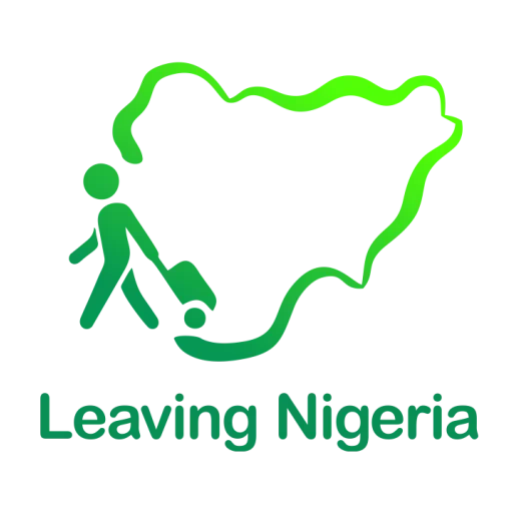Visa rules for Nigerians are now stricter than ever, as they are undergoing serious scrutiny across key countries, including the United Kingdom, the United States, Canada, and the United Arab Emirates, among others. With stricter entry conditions, shorter visa durations, higher financial thresholds, and increased rejection rates, Nigerians are facing a new wave of challenges when seeking travel opportunities abroad. Issues like visa overstays, fraudulent documentation, national security risks, and economic strain on host countries largely drive these immigration policy shifts.
You must understand these immigration visa updates to plan more effectively and take the right steps. In this article, we will examine the updated visa rules for Nigerians and what each entails for you.
The United Kingdom Introduces Digital eVisas for Nigerians
On July 15, 2025, the UK Home Office began rolling out digital eVisas for Nigerian applicants for study and work visas. According to the British High Commission in Abuja, this initiative is part of the UK’s strategy to fully digitise its immigration system by 2026.
Under the new system, applicants will still need to visit a Visa Application Centre (VAC) to submit biometric data. Still, they will no longer receive a physical visa sticker in their passports. Instead, an eVisa will be linked to an online UK Visas and Immigration (UKVI) account, which travellers can access through the “View and Prove” digital service.
This shift introduces both convenience and complications. On the one hand, it simplifies border checks and reduces the printing of fraudulent visas. On the other hand, it raises concerns about accessibility in Nigeria, where internet connectivity, digital literacy, and trust in online systems remain low.
Although other categories, such as dependent family members and tourist visa applicants, will still receive traditional vignettes, this marks a significant shift in the visa rules for Nigerians, especially students and skilled workers. The change underscores the UK’s long-term intention to create a seamless, automated border experience, but not all applicants may be ready for it.
United States Reduces Visa Validity for Nigerian Travellers
Among the most impactful developments in recent times is the United States’ decision to reduce the duration of non-immigrant visas for Nigerians to just three months, with a single entry only. This policy shift applies to widely used visa types such as the B1/B2 (business/tourism), F (student), and J (exchange visitor) visas.
The change, which is part of the U.S. Department of State’s global visa reciprocity review, is based on a high rate of visa overstays by Nigerians. According to available data, Nigeria ranks among the top countries for non-compliance with visa expiration rules, prompting the U.S. to revise its visa policies toward the country.
The U.S. government further noted issues with verifying applicants’ information, citing poor record-keeping and inadequate cross-agency cooperation in Nigeria as barriers to effective background checks.
This update in visa rules for Nigerians has led to deep concerns from Nigerian authorities. The Ministry of Foreign Affairs issued a statement appealing for reconsideration of the policy in light of the longstanding diplomatic, economic, and cultural relationships between the two nations. Officials also emphasised the potential damage to academic and professional exchanges, as well as family reunifications.
While the U.S. maintains the sovereign right to determine its immigration policies, critics argue that the measures disproportionately affect genuine travellers and send an unfriendly signal to Nigerian citizens hoping to contribute positively abroad.
TRENDING: Kenya scraps all Visa Requirements for Africans and Most of the Caribbean
Canada Raises Financial Requirements for Express Entry Applicants
Canada, traditionally seen as one of the more accessible destinations for skilled immigrants, has also made substantial changes. On July 7, 2025, the Immigration, Refugees and Citizenship Canada (IRCC) raised the minimum proof-of-funds threshold for applicants under its popular Express Entry system.
For a single applicant, the amount required increased from CAD $14,690 to CAD $15,263, which translates to approximately ₦17 million at the current exchange rate. For a two-person household, the requirement increased to CAD $19,001. These changes follow Canada’s annual review of settlement funds to ensure that newcomers can financially support themselves upon arrival.
In terms of documentation, the updated visa rules for Nigerians now require official letters from recognised banks, printed on letterhead and signed, with full account details including the opening date, balance history, and contact information. If the funds are held in a joint account with a spouse or co-applicant, both parties must be named and provide matching documentation.
Failure to meet the updated threshold by July 28, 2025, will result in automatic disqualification, even for highly ranked candidates in the Express Entry pool. This poses a significant hurdle for many Nigerians who struggle with currency instability, inflation, and irregular income patterns.
Canada’s overall immigration strategy is also undergoing a shift. Earlier in 2025, the government announced plans to cap the number of temporary foreign workers and international students at less than 5% of the population by 2027, in response to domestic housing and healthcare crises. This means that fewer Nigerians will gain entry under programs that were once considered accessible pathways to permanent residency.
UAE Blocks Tourist Visas for Nigerians Aged 18–45
Once one of the most welcoming destinations for Nigerian tourists and entrepreneurs, the United Arab Emirates (UAE) has adopted a more exclusionary stance in recent months. A new directive now makes Nigerians aged 18 to 45 ineligible for tourist visas unless they are travelling in a group or with family members.
The directive doesn’t stop there. Applicants aged 45 years or older are also subject to more rigorous financial requirements. To be eligible for a tourist visa, applicants must now provide a bank statement showing a monthly balance of at least $10,000 (or its equivalent in naira) for six consecutive months. These financial standards are considerably above average for many middle-class Nigerians and have effectively curtailed access to the UAE for solo travellers.
While no formal diplomatic note has been sent from the UAE to Nigeria, the policy is already being enforced at visa application centres and by travel agents across the country. The move is part of the UAE’s broader efforts to control irregular migration, protect its local job market, and address overstays, which Nigerians have been accused of contributing to disproportionately.
Travel and tourism stakeholders in Nigeria have expressed outrage, noting that the UAE has historically benefited from Nigerian tourism and business. The new visa rules for Nigerians, they argue, reflect unfair generalisations and penalise many for the actions of a few.
Saudi Arabia Suspends Blockwork Visas for Nigerians
The Kingdom of Saudi Arabia recently suspended the issuance of blockwork visas to Nigerian citizens and six other African countries, including Egypt, Algeria, Ethiopia, Sudan, Tunisia, and Morocco. The decision was framed as a temporary measure coinciding with the Hajj pilgrimage season, a time when labour migration to Saudi Arabia typically spikes.
This suspension has a direct impact on temporary work opportunities for Nigerians, particularly those employed in the construction, hospitality, and healthcare sectors. While the government described the move as seasonal, it also aligns with Saudi Arabia’s Saudization policy, which mandates higher employment of local citizens in critical sectors.
Under this policy, employers are being encouraged to reduce their dependence on foreign labour, particularly from countries that have previously supplied large migrant worker populations. Even previously approved visa quotas are subject to delays under the new guidelines.
For Nigerians, this change in visa rules represents a double blow: it reduces access to income-generating opportunities abroad. Furthermore, it reinforces the notion that African labour is becoming less desirable in the Gulf region.
Underlying Factors Driving the New Visa Rules for Nigerians
Several core factors underpin the increasingly strict visa rules for Nigerians:
- High Overstay Rates – Reports from the U.S. Department of Homeland Security indicate a disproportionate number of Nigerians overstaying their visas, prompting countries to tighten entry conditions.
- Fraudulent Documentation – Incidents involving forged bank statements, fake academic records, and employment letters have forced immigration authorities to apply rigorous vetting procedures.
- National Security Concerns – Heightened global security awareness post-pandemic and amid rising extremism has led nations to scrutinise visa applications from perceived high-risk countries carefully.
- Economic Strain – Host nations, such as Canada, are experiencing internal pressures, including job competition, housing challenges, and resource limitations.
- Reciprocity Principles – Countries like the U.S. use reciprocal treatment as a benchmark, adjusting visa access in response to how their citizens are treated abroad.
These trends reflect a shift toward protectionism and nationalism in global immigration policies, which disproportionately impact countries like Nigeria.
Nigeria’s Diplomatic Push for Reforms
The Federal Government of Nigeria has expressed deep concern over the latest changes and is actively engaging with affected nations. In response to the U.S. policy shift, the Ministry of Foreign Affairs emphasised the importance of mutual respect and longstanding diplomatic ties.
President Bola Ahmed Tinubu has directed federal agencies to ensure the accurate verification of visa applicants’ identities and to maintain Nigeria’s obligations under international law. He also reaffirmed the commitment to safeguarding Nigerians’ ability to travel, live, and work abroad in dignity.
On the UAE front, although formal notification remains pending, the government is cautiously optimistic about the gradual restoration of normal visa processing.
Nigeria’s foreign policy under the current administration includes a “4-D Foreign Policy Agenda” with a strong emphasis on the diaspora. Within this framework, restoring fair and transparent visa rules for Nigerians remains a top priority.
How Nigerians Can Adapt to New Visa Realities
As visa rules for Nigerians continue to evolve across key global regions, prospective travellers must adopt new strategies to remain compliant and competitive:
- Prepare Documentation Meticulously – Submit clean, verified documents from trusted institutions to avoid red flags.
- Apply Early – Processing times have lengthened due to stricter screening. Start the visa application process months in advance.
- Avoid Middlemen and Fraudulent Agents – Many applicants fall prey to “visa fixers” who use forged documents. Stick to official platforms and channels.
- Stay Informed on Policy Changes – Immigration laws are constantly evolving. Regularly check embassy websites and consult certified travel agents for accurate information.
- Consider Alternative Routes – Where traditional paths are blocked, consider regional study or work programs that may later offer mobility into larger economies.
READ MORE: 10 Cheapest Countries to Study in Europe for International Students (2025)
From North America to the Middle East and Europe, visa rules are redefining how Nigerians travel. While governments worldwide claim that these changes are necessary to address internal challenges, their impact on genuine Nigerian travellers, such as students, businesspeople, and families, is undeniably harsh.
Nonetheless, the Nigerian government is actively engaging in diplomacy to resolve these issues, and citizens are encouraged to respect foreign immigration laws while also demanding fairness in their treatment globally.
Additionally, you must navigate these hurdles wisely, lawfully, and strategically. The hope remains that balanced immigration policies can emerge, the ones that prioritise security without compromising dignity and opportunity for Nigerians around the world.
Discover more from Leaving Nigeria
Subscribe to get the latest posts sent to your email.





